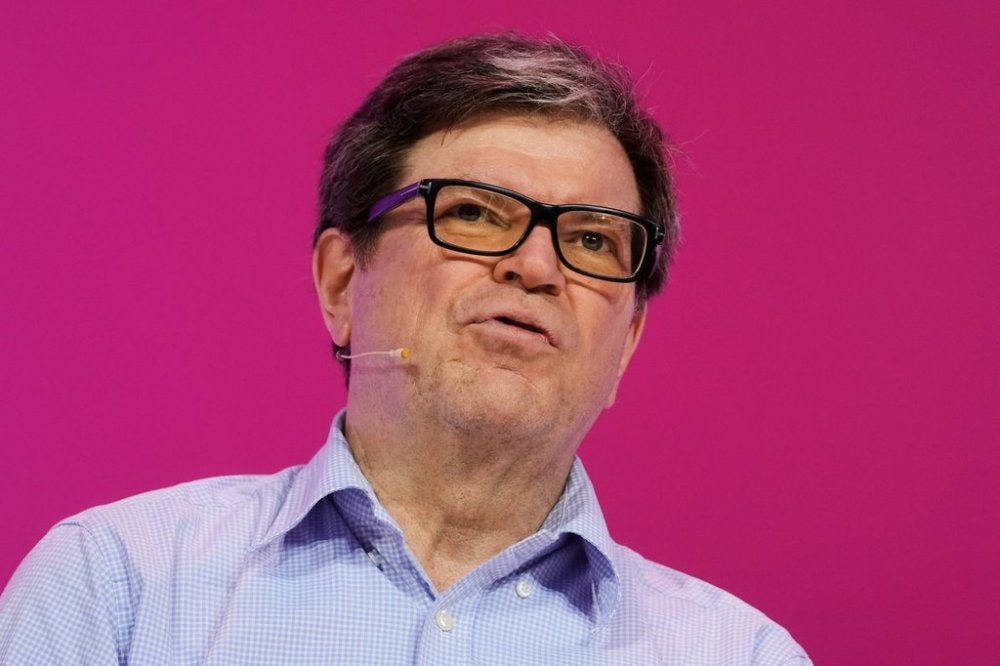Meta’s chief AI scientist Yann LeCun to leave Meta and start new AI research company
Advertisement
Read this article for free:
or
Already have an account? Log in here »
To continue reading, please subscribe:
Monthly Digital Subscription
$0 for the first 4 weeks*
- Enjoy unlimited reading on winnipegfreepress.com
- Read the E-Edition, our digital replica newspaper
- Access News Break, our award-winning app
- Play interactive puzzles
*No charge for 4 weeks then price increases to the regular rate of $19.00 plus GST every four weeks. Offer available to new and qualified returning subscribers only. Cancel any time.
Monthly Digital Subscription
$4.75/week*
- Enjoy unlimited reading on winnipegfreepress.com
- Read the E-Edition, our digital replica newspaper
- Access News Break, our award-winning app
- Play interactive puzzles
*Billed as $19 plus GST every four weeks. Cancel any time.
To continue reading, please subscribe:
Add Free Press access to your Brandon Sun subscription for only an additional
$1 for the first 4 weeks*
*Your next subscription payment will increase by $1.00 and you will be charged $16.99 plus GST for four weeks. After four weeks, your payment will increase to $23.99 plus GST every four weeks.
Read unlimited articles for free today:
or
Already have an account? Log in here »
Artificial intelligence pioneer Yann LeCun said Wednesday he will be leaving his job as Meta’s chief AI scientist at the end of the year.
LeCun said he will be forming a startup company to pursue research on advanced forms of AI that can “understand the physical world, have persistent memory, can reason, and can plan complex action sequences.”
His announcement, after more than a week of rumors, comes after Meta Platforms, the parent company of Facebook, Instagram and WhatsApp, began cutting roughly 600 AI jobs this fall.

LeCun said in a social media post that Meta will partner with the new startup and that some of the research will overlap with Meta’s commercial interests and some of it will not.
Meta didn’t immediately respond to a request for comment.
LeCun joined Facebook in 2013 and co-founded Meta’s AI research division, formerly known as Facebook AI Research, which has often worked to advance computer science research that’s not directly tied to immediate commercial products. LeCun stepped down as the group’s director in 2018 but has remained Meta’s chief AI scientist.
His departure reflects a shift since Meta in June made a $14.3 billion investment in AI data company Scale and recruited its CEO Alexandr Wang to help lead a team developing “superintelligence” at the tech giant.
Meta CEO Mark Zuckerberg has been pushing to revive commercial AI efforts as the company faces tough competition from rivals such as Google and OpenAI, maker of ChatGPT.
LeCun has long expressed public skepticism about the sophistication of large language models behind chatbots like ChatGPT, saying that they are useful but doubting that they will be a path to the better-than-human AI that other tech leaders have promised. He has also been a strong advocate for open-source AI systems that, like Meta’s own large language model, Llama, make their key components publicly accessible in a way that some AI safety advocates deem too risky.
LeCun is also a part-time professor at New York University, where he has taught since 2003.
LeCun studied in his native France and later Canada before spending his early career at the image processing department at AT&T Bell Labs in New Jersey, where he worked on developing AI systems that could “read” text found in digitized images. He was a winner in 2019 of computer science’s top prize, the Turing Award, along with fellow AI pioneers Yoshua Bengio and Geoffrey Hinton.

